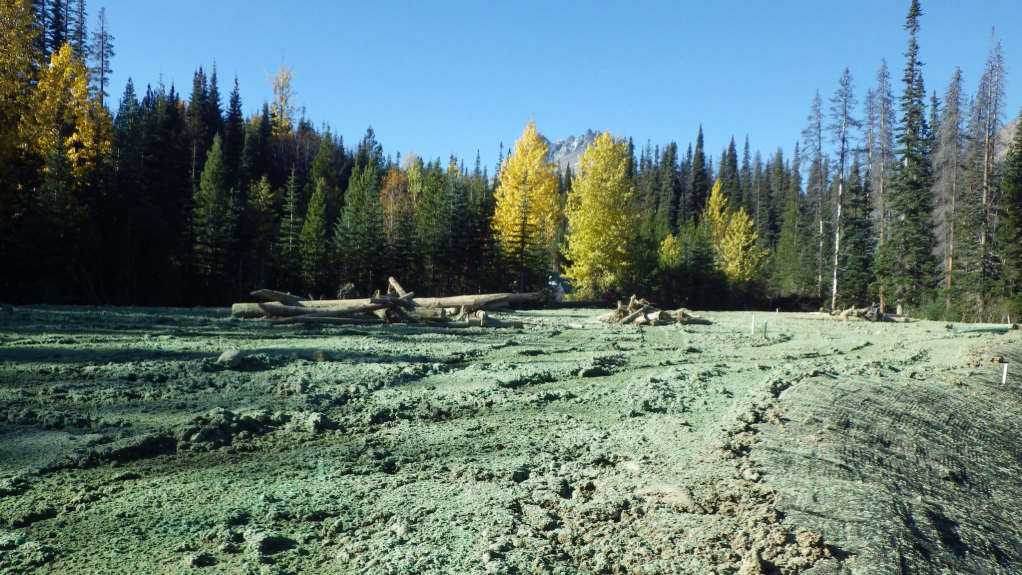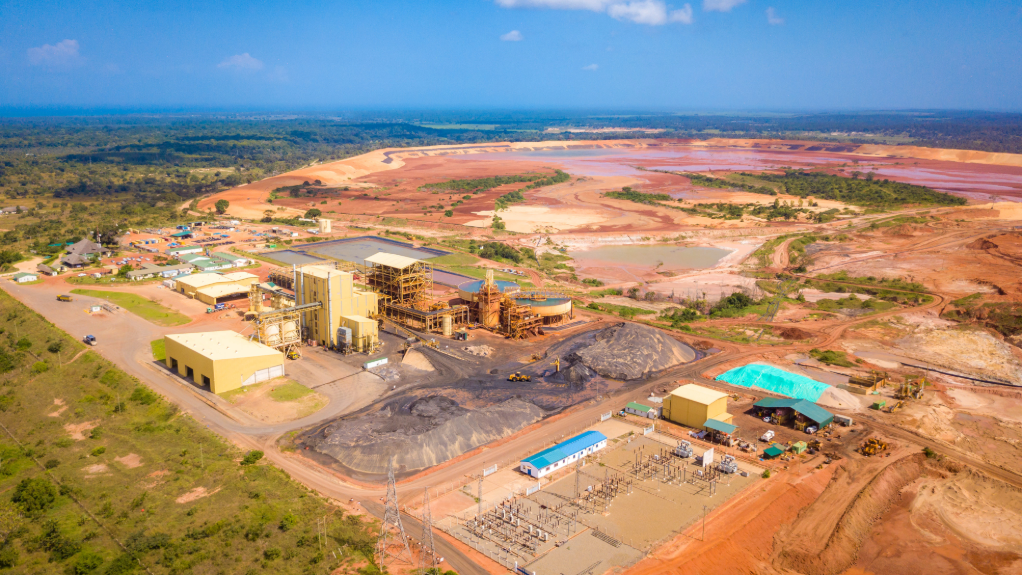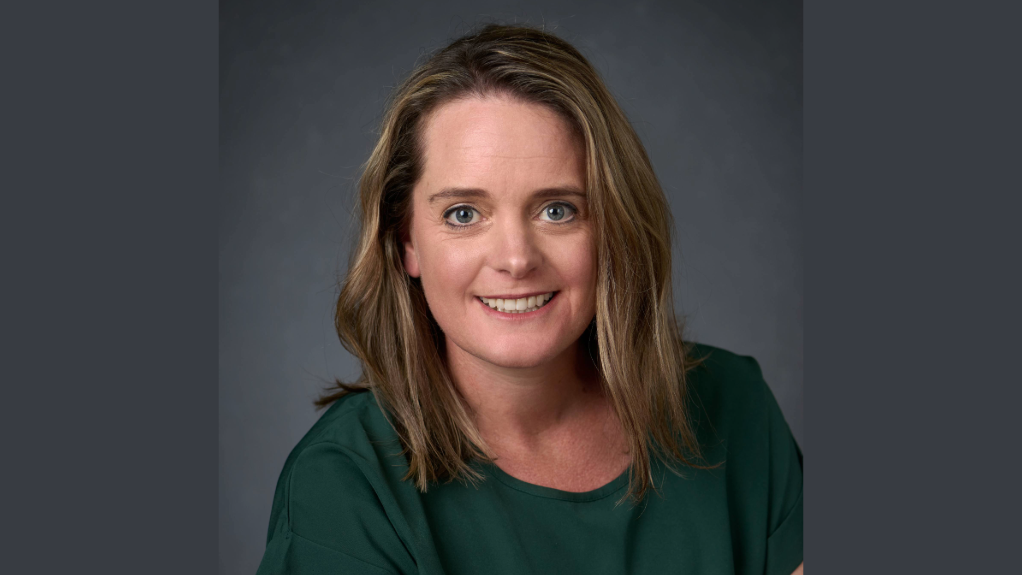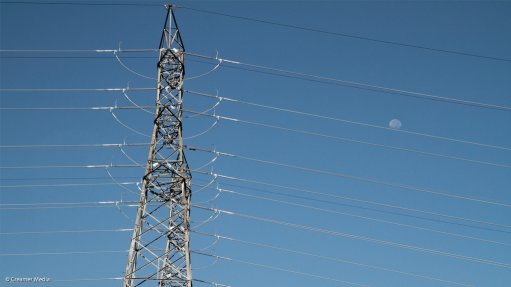ESG trends suggest greater accountability




REPORTING STANDARDS Many African mining companies have adopted the Global Reporting Initiative to report on their enivornmental and social impacts
RIGOROUS APPROACH The JSE has set a high standard for ESG disclosure, consequently spurring African mining companies to adopt rigorous risk and environmental management protocols
PHILIPPA BURMEISTER ESG disclosure practices are becoming essential for sustainable operations
With environmental, social and governance (ESG) criteria becoming increasingly critical to stakeholders, mining companies in Africa face more demanding reporting requirements and evolving standards. ESG disclosure practices are becoming essential for sustainable operations, as they influence investment, regulatory compliance and corporate transparency, reports global engineering and scientific consultancy SRK Consulting.
The Johannesburg Stock Exchange (JSE) has set a high standard for ESG disclosure, consequently spurring African mining companies to adopt rigorous risk and environmental management protocols, says SRK Consulting partner and principal environmental scientist Philippa Burmeister.
“Sustainability reporting in terms of the JSE’s ESG disclosure practices has encouraged companies to set challenging risk and environmental management targets, and then publicly report progress.”
This shift has heightened the visibility of environmental issues in corporate strategy, as mining companies increasingly recognise the role these factors play in attracting investment, adds Burmeister.
The African Securities Exchanges Association (ASEA) has further bolstered sustainability reporting across African markets by partnering with global initiatives such as the United Nations Sustainable Stock Exchanges initiative.
ASEA’s efforts, notes Burmeister, aim to provide a structured framework for ESG disclosures, supporting member exchanges in adopting sustainable practices. Such collaborative efforts underscore a growing regional commitment to transparency and accountability.
However, several international organisations, including the Global Reporting Initiative (GRI) and the Sustainability Accounting Standards Board (SASB), continue to significantly affect African mining companies’ ESG practices.
The GRI provides a framework for sustainability reporting, which many African mining companies have adopted to report on their environmental and social impacts, while the SASB’s industry-specific standards help companies align their practices with global benchmarks and address investor expectations effectively.
The involvement of international lenders also affects ESG reporting requirements, particularly regarding environmental- and social-impact assessments.
Lenders rely on frameworks such as the International Finance Corporation’s Performance Standards and the Equator Principles when evaluating mining projects, with companies with these sustainability certifications gaining a competitive edge by attracting better financing terms and greater investment, as they demonstrate a proactive approach to ESG risk management, notes Burmeister.
Mandatory Reporting
In recent years, climate-related risk disclosures have become mandatory, with the Task Force on Climate-related Financial Disclosures (TCFD) leading the way until its mandate concluded in October 2023, says Burmeister.
The new International Financial Reporting Standards (IFRS) S2 Sustainability Disclosure Standard, issued by the International Sustainability Standards Board, takes its place.
“While TCFD provided a flexible framework for climate-related risks, IFRS S2 integrates these requirements within a broader sustainability reporting framework, demanding more detailed and comprehensive disclosures.”
This evolution presents an opportunity for African mining companies to deepen their climate-related risk assessments, she adds.
However, the IFRS S2 standard presents unique challenges for mining operations, given the nature of their operations and location.
Burmeister highlights the dual risks associated with climate impacts being physical risks from climatic shifts and transitional risks in moving toward lower-carbon technologies.
She adds that forecasting climate impacts remains complex, owing to uncertainties in greenhouse-gas emissions projections.
Transitional risks also pose hurdles, as companies need established support systems to repair and maintain lower-carbon equipment, which are limited in remote African regions.
Despite these challenges, Burmeister indicates many established brands are starting to offer renewable options, helping companies to overcome initial implementation barriers.
Evolving Services
With an increasing demand for expertise in climate risk management, the services of consulting firms such as SRK are evolving, leveraging extensive experience in environmental management and mining to provide clients with robust tools for climate risk analysis.
“SRK has developed tools to download, process and analyse modelled meteorological data efficiently, reducing human error and speeding up the analysis process.”
Burmeister adds that SRK’s tools are advancing to incorporate climate change projections tailored to specific sites, consequently enhancing the accuracy of risk assessments for African mining operations.
She suggests that ESG disclosure trends are pointing towards greater accountability for African mining companies.
The launch of the Consolidated Mining Standard Initiative in October, supported by prominent industry groups such as the CEO-led leadership organisation ICMM, is expected to prompt mining companies to adopt the guidelines as they become mainstream by 2026.
“Similar to the Global Industry Standard on Tailings Management, this new standard, though voluntary, is likely to be widely adopted, and compliance with these standards will demand comprehensive internal reviews and targeted efforts to meet ESG commitments,” she notes.
As the ESG landscape becomes more demanding, companies starting their ESG journey must take initial steps strategically, and Burmeister advises that new entrants benchmark various standards and identify gaps in their current practices.
“It’s critical to carefully consider the reporting standards that will best serve company goals and stakeholder needs.”
A gap analysis, for example, will help companies understand where to focus their efforts, setting realistic targets and tracking their progress, concludes Burmeister.
Article Enquiry
Email Article
Save Article
Feedback
To advertise email advertising@creamermedia.co.za or click here
Press Office
Announcements
What's On
Subscribe to improve your user experience...
Option 1 (equivalent of R125 a month):
Receive a weekly copy of Creamer Media's Engineering News & Mining Weekly magazine
(print copy for those in South Africa and e-magazine for those outside of South Africa)
Receive daily email newsletters
Access to full search results
Access archive of magazine back copies
Access to Projects in Progress
Access to ONE Research Report of your choice in PDF format
Option 2 (equivalent of R375 a month):
All benefits from Option 1
PLUS
Access to Creamer Media's Research Channel Africa for ALL Research Reports, in PDF format, on various industrial and mining sectors
including Electricity; Water; Energy Transition; Hydrogen; Roads, Rail and Ports; Coal; Gold; Platinum; Battery Metals; etc.
Already a subscriber?
Forgotten your password?
Receive weekly copy of Creamer Media's Engineering News & Mining Weekly magazine (print copy for those in South Africa and e-magazine for those outside of South Africa)
➕
Recieve daily email newsletters
➕
Access to full search results
➕
Access archive of magazine back copies
➕
Access to Projects in Progress
➕
Access to ONE Research Report of your choice in PDF format
RESEARCH CHANNEL AFRICA
R4500 (equivalent of R375 a month)
SUBSCRIBEAll benefits from Option 1
➕
Access to Creamer Media's Research Channel Africa for ALL Research Reports on various industrial and mining sectors, in PDF format, including on:
Electricity
➕
Water
➕
Energy Transition
➕
Hydrogen
➕
Roads, Rail and Ports
➕
Coal
➕
Gold
➕
Platinum
➕
Battery Metals
➕
etc.
Receive all benefits from Option 1 or Option 2 delivered to numerous people at your company
➕
Multiple User names and Passwords for simultaneous log-ins
➕
Intranet integration access to all in your organisation





















